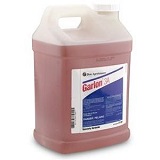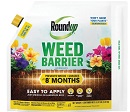Garlon vs Roundup Weed Killer
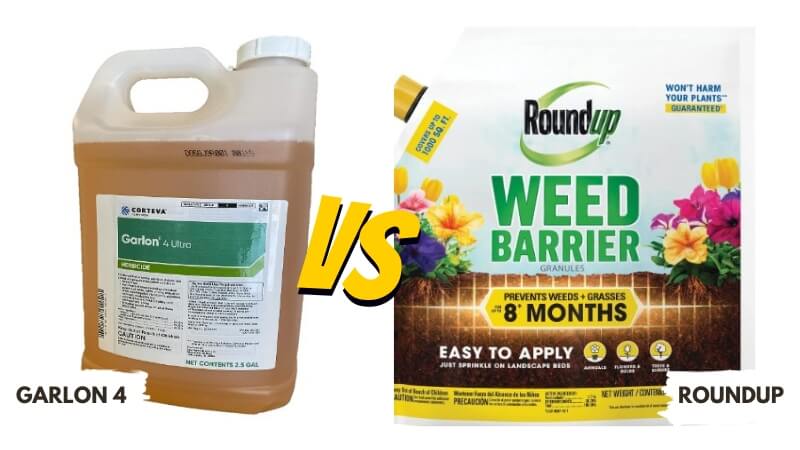
The main difference between Garlon 4 Ultra and Roundup Weed Barrier Granules is that Garlon 4 Ultra is a selective post-emergent herbicide used to control established woody plants and broadleaf weeds.
At the same time, Roundup Weed Barrier Granules is a pre-emergent herbicide that creates a weed barrier to prevent germination of weeds and grasses.
Garlon vs Roundup
This table will provide you with a quick and easy way to comprehend the distinctions between them.
Short Overview
Garlon 4 Ultra is a selective systemic herbicide recommended for controlling woody plants and tough broadleaf weeds in non-crop areas.
Roundup Weed Barrier Granules provide pre-emergent weed control by creating a barrier that prevents weed seeds from germinating.
While both products are effective herbicides, Garlon targets existing vegetation while Roundup prevents new weeds from sprouting.

Active Ingredients
The active ingredient in Garlon 4 Ultra is triclopyr butoxyethyl ester, which is absorbed by plant foliage and roots and translocates throughout the plant tissue.
It is effective on woody plants like shrubs and trees as well as broadleaf weeds. The active ingredient in Roundup Weed Barrier Granules is pendimethalin, which inhibits cell division and growth in newly germinating weed seeds, preventing root establishment.
Intended Use
Garlon 4 Ultra is intended for selective control of broadleaf weeds and woody plants in industrial sites, forests, roadsides, railroads, rights-of-way, and other non-crop areas.
It is effective on species like kudzu, poison ivy, and sumac. Roundup Weed Barrier Granules are intended to prevent weed germination in ornamental plantings like flower beds, gardens, and landscaped areas.
How to Use
Garlon 4 Ultra is applied as a foliar spray using water or oil-water emulsions. It can also be used for cut stump and basal bark treatments.
Roundup Weed Barrier Granules are sprinkled around established plants at 2 tbsp per 10 sq ft and watered in to activate the herbicide. Raking granules 1 inch into the soil can improve weed control.
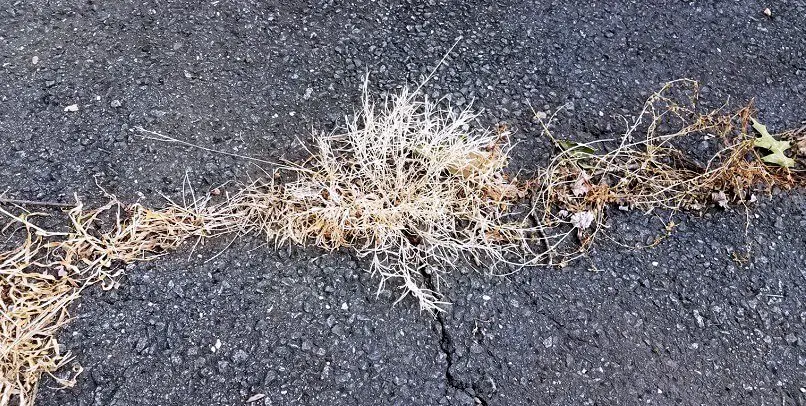
Coverage
At a rate of 1-8 quarts per acre, Garlon 4 Ultra can provide selective control of undesirable woody and broadleaf plants.
One 5.37 lb bag of Roundup Weed Barrier Granules can cover up to 1000 sq ft, preventing weed growth for up to 8 months.
Application Method
As a liquid formulation, Garlon 4 Ultra is applied through foliar sprays, stem injections, cut stump treatments, and basal bark treatments.
Roundup Weed Barrier Granules are applied by scattering granules around established plants and watering in to activate them.
Residual Effect
Garlon 4 Ultra controls actively growing woody and broadleaf plants but does not prevent new seeds from germinating.
Roundup Weed Barrier Granules provide up to 8 months of residual pre-emergent weed control by creating a barrier that stops seed germination.
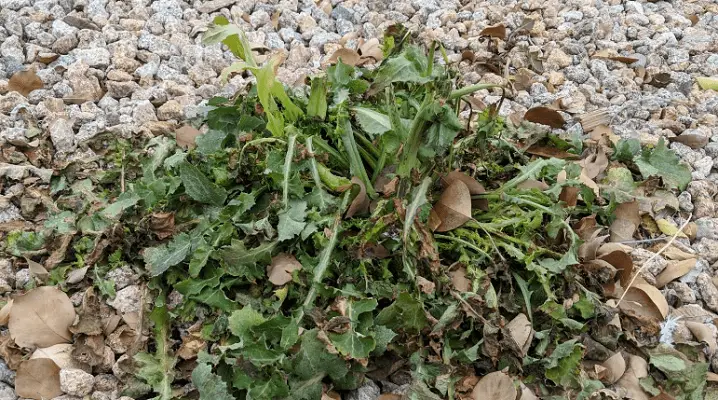
Where to Use
Garlon 4 Ultra can be used in non-crop areas like roadsides, pipelines, railroads, forests, industrial sites, and rights of way that need control of woody and broadleaf vegetation.
Roundup Weed Barrier Granules are suitable for use around established ornamental plantings like trees, shrubs, flowers, and lawns.
When to Apply
The optimal timing for Garlon 4 Ultra application is late summer to early winter for basal bark and cut stump treatments.
Roundup Weed Barrier Granules should be applied in spring before mulching and weed germination or after planting bedding plants.
Packaging
Garlon 4 Ultra comes in 2.5-gallon jugs and 30-gallon drums. It is also available in refillable containers. Roundup Weed Barrier Granules come in a 5.37 lb shaker bag, which covers up to 1000 sq ft.
Application Frequency
Garlon 4 Ultra should be applied as needed based on the severity of undesirable woody/broadleaf infestations. Roundup Weed Barrier Granules should be reapplied every 12 months according to label directions to maintain effective weed control.
Our Observation
Garlon 4 Ultra seems best suited for controlling established woody plants and tough broadleaf weeds in non-crop areas like roadsides and forests. Its systemic action provides lasting control.
Roundup Weed Barrier Granules are ideal for preventative weed control in ornamental plantings and landscapes. Their prolonged residual activity makes reapplication just once a year necessary.
For the home gardener looking to keep planting beds weed-free with minimal effort, we recommend using Roundup Weed Barrier Granules. Its simple application and long-lasting weed prevention make it the best choice for most landscaped areas.

James E. Butkovich, Pest control maven with a knack for eco-friendly & Chemical solutions. Blogger with a mission to make homes pest-free, one post at a time.
